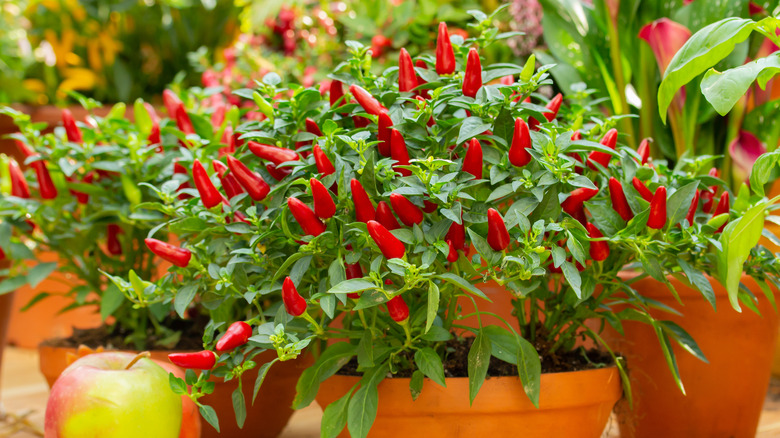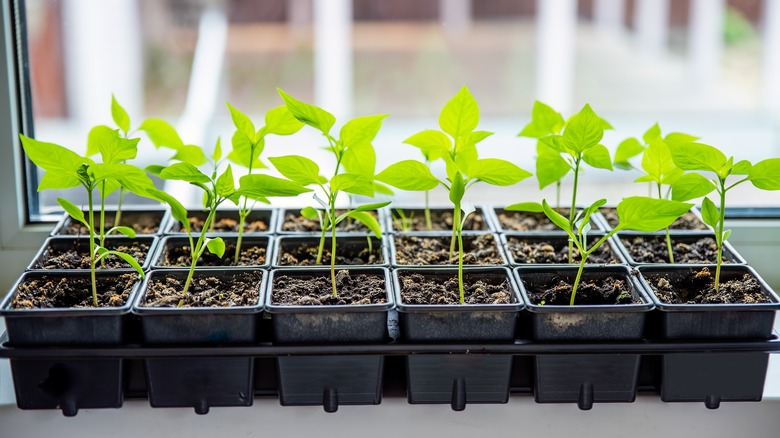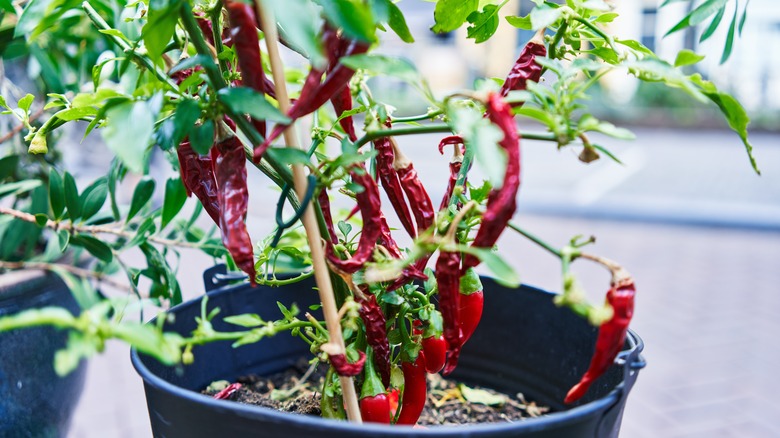How To Grow Pepper Plants In Containers For A Bountiful Harvest In A Small Space
We may receive a commission on purchases made from links.
Are you dreaming about growing an edible pepper garden in the confines of your balcony or small garden? The good news is that peppers are easy enough to grow in containers and ask for precious little in return for bountiful harvests. All they need is plenty of sun, warm ambient temperatures, adequate watering, and proper drainage — requirements you can easily meet if you buy the right containers, get a suitable soil blend, and keep the plants in a sunny spot.
Setting up and maintaining the right substrate conditions for your potted peppers is perhaps the most demanding task, as you need to balance water and fertilization needs. Potted peppers like moisture, but cannot stand waterlogging. This means they need well-draining potting mix instead of garden soil, which holds too much water in containers. Also, pots limit a plant's access to nutrients, so you'll need to feed the peppers at the right time to ensure their health and a quality harvest. These demands may seem overwhelming, but again, they're really not if you follow a few simple tips for watering your plants and use the correct fertilizer. Below, you'll learn how to manage these growing requirements so that your potted peppers don't disappoint you come harvest season.
Growing potted peppers from seeds and plantings
You can start your potted pepper farm from seeds or buy young seedlings. Starting with young plants helps you save time as you avoid the germination stage. However, seeding your peppers affords an extra dose of satisfaction as you watch the tiny plants sprout from the soil and mature before finally bearing fruit all under your care.
If you start with seedlings, transplant them into containers that are at least half a foot in diameter and have a volume of 5 gallons. Be sure to use potting mix instead of garden soil, since pepper plants can rot easily in a waterlogged planting medium. Next, find the plants a spot on the balcony that receives full sun for at least six hours every day.
Now, if you've decided to start from scratch and plant pepper seeds, do so in starter pots, like these from Amazon (or, learn how to make your own starter pots instead). Fill these pots with a soilless germination mix, then insert one seed per pot into the medium 1/4-inch deep. Water the soil enough to make it moist, and leave the pots in a sunny location with a temperature of 90 degrees Fahrenheit, or use a heating mat to keep the germination medium warm. The seedlings will sprout in about 10 days. Keep them in place until true leaves emerge on their stems. Then, transplant them to their permanent container following the same process you'd use to plant store-bought seedlings.
How to keep pepper plants healthy in their pots
Potted peppers are finicky about water, as they thrive in consistently moist soil yet well-drained. To find out whether it's time to water the peppers, check the surface of the soil for moisture. If the soil feels damp at the top, don't water yet. However, if it's dry to the touch, then you should irrigate the plants. Avoid frequent irrigation with small water quantities, as this could cause disease and keep the roots from growing deep. Base your watering frequency on the ambient temperature, watering more often during periods of extreme heat. To keep the plants happy, irrigation shouldn't cause soggy soil and, conversely, you mustn't let the soil dry out at the surface.
Potted peppers need additional nutrition as they grow, but it's best not to give too much fertilizer. Likewise, choose the right type of fertilizer for these plants. Plant food with a high nitrogen content is not ideal, since it leads to a meager harvest. Instead, use any fertilizer designed for vegetables, like this one from Home Depot, applying it as needed according to the package instructions throughout the growing season. You can harvest the peppers when they're green, or give them more time to become riper and more sweet.


